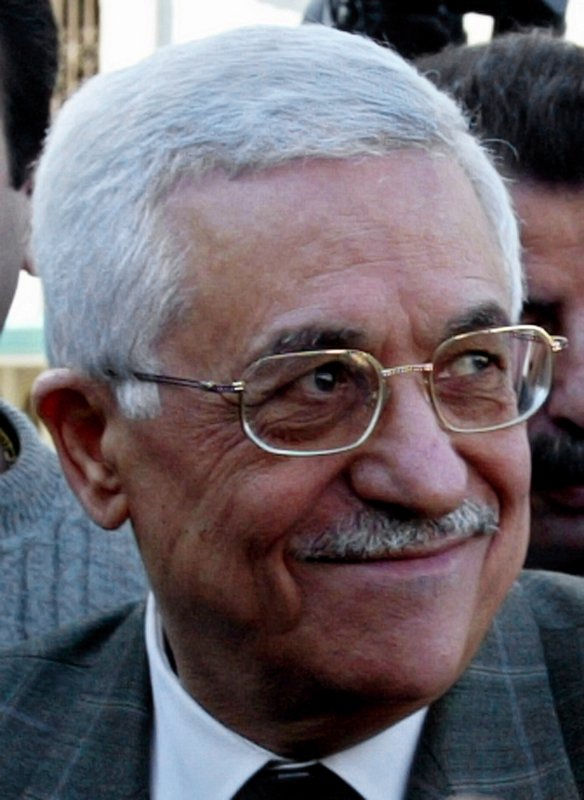1 of 3 | Palestinian Authority president and Fatah chairman Mahmoud Abbas at a news conference in Gaza city, on Dec. 2, 2004. (UPI Photo /Ismael Mohamad) |
License Photo
BETHLEHEM, West Bank, Aug. 6 (UPI) -- When Fatah, the Palestinian political movement, last held a party congress it was 1989, in Tunisia, and Yasser Arafat was the chairman. Arafat died in a French hospital in 2004, but his presence looms over the Fatah congress currently being held in Bethlehem.
Arafat once addressed the U.N. General Assembly wearing military olive drab with a pistol on his hip. It would be hard to imagine his successor, Mahmoud Abbas, suit-wearing and bespectacled, toting a gun. Yet when Abbas opened the congress Tuesday he stood in front of a huge blowup photo of Arafat.
Every mention of Arafat drew huge applause, and he has now entered the realm of Palestinian myth. Younger leaders at the conference have accused the old guard, associates of Arafat, with corruption. Most neutral observers see Arafat as at the center of that corrupt web, but to most of Fatah his reputation is untouchable.
Yet his legacy may be the main obstacle to achieving a Palestinian state. Abbas' suits are not simply a fashion preference. They are an expression of what is needed now for state-building. Arafat was the revolutionary who brought the Palestinian Liberation Organization back to Palestine. What he then created revolved around his personality and a web of personal ties and payoffs. He left no functional institutions.
Abbas and his prime minister, Salam Fayyad, once an economist with the International Monetary Fund, believe negotiating for and creating a viable independent state requires a different approach. Fayyad wants to create a government that reliably delivers services to its people. One of the reasons Fatah lost elections to Hamas in 2006 was that Hamas had much more effective social services.
Fayyad also wants government to be accountable with transparent finances, the basis of a functioning modern state, to replace the corruption that has produced much of the anger toward the old guard from younger Fatah representatives at the conference.
Abbas, in his speech Tuesday, spoke of the developing rule of law in the West Bank, citing the fact that drivers who don't buckle up are now fined. Seatbelt laws may not figure large among his critics' issues, but the remark offers insight into his approach to a Palestinian future.
Abbas did not disown the PLO's history of armed struggle but called, in dealing with Israel, for resistance that conformed to international law. That approach complements the institution-building that Abbas and Fayyad are pursuing. But that approach will not sway all the delegates, and the spirit of Arafat may prevail.
How to deal with Israel is a major question for delegates. Fatah's original charter calls for the destruction of Israel and support for armed struggle. There are those who want it retained. Others want revisions, among them one that would prohibit the Palestinian leadership from recognizing Israel as a Jewish state as Israeli Prime Minister Binyamin Netanyahu has demanded.
Another proposal is to set a time limit on talks with Israel -- the end of 2010 being most commonly suggested. If there were no agreement on establishing a state by then it would mean a return to "resistance" in some form. There is a real danger that these issues will drown out the voices calling for Palestinian institution-building.
The Fatah meeting has been heated and contentious so far. It has even prompted King Abdallah of Saudi Arabia to send an open letter to Abbas decrying the divisions. Israel, he wrote, "could not … have inflicted as much damage to the Palestinian cause as did the Palestinians themselves in a matter of a few months."
The fractious delegates finally found something they could unite upon Thursday. They unanimously approved a resolution blaming Israel, as the occupying power, for the death of Yasser Arafat.





